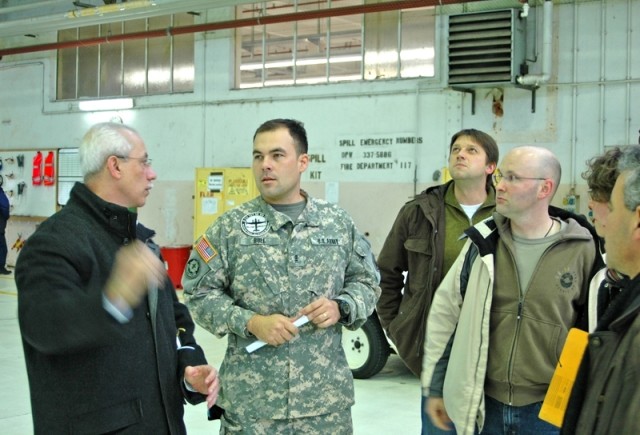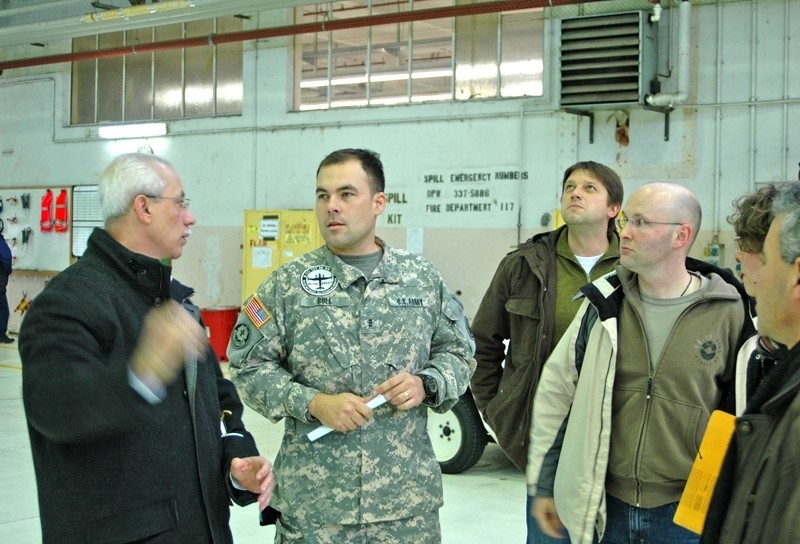WIESBADEN, Germany - A cooperative effort between the city of Wiesbaden, U.S. Army Garrison Wiesbaden and private industry aims to save resources, decrease waste, address environmental concerns correctly and provide for sustainable development.
Launched in October 2007, the Oekoprofit Wiesbaden initiative includes workshops, site visits and official certification after concerned parties meet standards and initiatives to improve operations.
"We have a very good environmental program in Wiesbaden. ... This is just an added program to do even more," said Kader Guerba, program team leader and chief of the environmental division for USAG Wiesbaden Directorate of Public Works.
And by playing an active role in the joint effort and being certified for its efforts, the garrison can also improve its image in the German community.
"It raises our image by Wiesbaden city officials and its population that U.S. Army Garrison Wiesbaden is proactive in protecting the environment, and is embracing the requirements and environmental concerns of the host nation," he said. "We want to be a partner with the city of Wiesbaden (in) environmental protection."
"The company (which oversees Oekoprofit) is helping us as a facilitator, helping evaluate the findings and providing us with ways on how to improve," said Guerba.
Three facilities - including a hangar, motor pool and dining hall on Wiesbaden Army Airfield - were selected as "test cases" for the Oekoprofit initiative. During the yearlong program, members of the Oekoprofit team consider all environmental aspects of building operations, including water, energy and waste management.
"These sites were selected by DPW ... due to high energy consumption," said Guerba, explaining that waste generation and depletion of resources are all considered. "We'll install meters for electricity, water and heat to gather data."
Hazardous materials management is another focus area, he said, adding that the motor pool was chosen for the hazardous materials management.
"When the assessment is completed, we will evaluate gaps in these areas and come up with recommendations on how to reduce electrical, heat and water consumption and reduce waste. The results of the data will be extrapolated to other buildings," Guerba added.
"We want to protect the environment by saving natural resources," he said, "by recycling and by also reusing rain water for wash racks and irrigation. We'll better control the emission of the heating plant and we'll maintain all the training areas in a more sustainable way."
Workshops throughout the year are aimed at sharing ideas and educating team members on ways to reduce energy and water consumption, and to better manage waste. Topics range from environmental policy to energy conservation and from eco-friendly procurement to legal considerations.
Raising the public's awareness about the Separate or Recycle Trash program to encourage better recycling habits is another important goal, said Peter Zeisberger, USAG Wiesbaden DPW's solid waste manager. Involving building coordinators and the chain of command in the recycling effort is crucial to the program's success, he said.
"The end result of the initiative is saving resources and energy," said Guerba, which translates to a considerable amount of money saved by the U.S. government. "There is always room for improvement."


Social Sharing